Comprehensive DBT vs DBT-INFORMED TREATMENT
During our initial intake with clients that are seeking DBT, we often hear, “I already tried DBT, and it did not work, how will this be any different?” There is a difference between delivering only some of the components of DBT (DBT-Informed Treatment) and delivering DBT to fidelity as it was designed by Dr. Linehan and her colleagues (Comprehensive DBT). Research literature on DBT, which illustrates its effectiveness, is based on Comprehensive DBT. When delivered in line with the research, DBT can be a life changing treatment. It is important that clients and their loved ones are educated and aware of what Comprehensive DBT looks like and the difference between Comprehensive DBT and DBT-Informed treatment. When investing in a research proven treatment to save a family member’s life, knowing that you are following the treatment protocol as it was studied is important.
What is the difference between Comprehensive DBT and DBT-Informed Treatment?
For those with more severe symptoms, Comprehensive DBT is the most effective approach to treatment. Individuals with self-injurious behavior and/or suicidal ideation should receive Comprehensive DBT. Research does not support DBT-Informed treatment for individuals with life threatening behaviors.
Comprehensive DBT
Below are the four required components of Comprehensive DBT treatment, as researched by Dr. Linehan and colleagues. Comprehensive DBT treatment should include all four of the components below, whether it is adolescent or adult DBT:
Weekly individual therapy with a DBT-trained clinician. A trained clinician is required to have a minimum of 40 DBT specific hours of training from a reputable training provider. If that clinician is not certified by DBT-LBC™, ask if they have received supervision from a certified clinician or a clinician within a DBT-LBC™ certified program. The structure of each individual session should be created by a client’s recorded answers on a form called a “diary card” which is individualized with specific targets that are directly related to the client’s Life Worth Living Goals and filled out daily. Filling out a diary card is an integral part of DBT treatment.
The highest standard in assessment of DBT delivery is the DBT-Linehan Board of certification™. To confirm certification of your DBT provider or program by the DBT-Linehan Board of Certification™, go to the website of the DBT-Linehan Board of Certification™: https://dbt-lbc.org/index.php
Weekly DBT skills training. Skills training is usually conducted in a group format, but on rare occasions done individually in a separate session focused solely on skills training. Adherent skills training requires that both teaching of new material AND a review of assigned weekly homework is conducted. Adherent DBT skills training groups are typically 2-2.5 hours long, utilize Dr. Marsha Linehan’s DBT skills training manual, and have a leader and co-leader/facilitator. During skills training clients learn the four core skills modules: mindfulness, interpersonal effectiveness, emotion regulation, and distress tolerance. Adolescent skills training includes the fifth module: walking the middle path.
Phone coaching. In-between sessions phone coaching should be offered 24-7 by the client’s individual therapist or a DBT therapist familiar with the client and his/her treatment plan. This is a crucial part of the treatment, supporting clients in actively using skills in daily life.
Clinician Consultation Team. Consultation team is often referred to as “therapy for the therapist.” This weekly consultation team meeting, with other DBT trained therapists, is structured to provide support to therapists and enhance their treatment skills to continue to provide the highest level of DBT adherent to the research.
Additional Component Required for Comprehensive Adolescent DBT
Parent Skills Group. In addition to all of the components above, adolescent DBT requires at least one caregiver to participate in a Parent Skills Group, whether it is a separate Parent Skills Group that follows the same schedule as the Adolescent Skills Group or a Multi-Family Skills Group where the child and parent attend together. The “caregiver” may be a parent, guardian, or adult sibling who is in a position to assist the client in skills generalization and implementation in their natural environment. The Parent Skills Group may occur with the adolescent (Multi-Family Group) or in parallel with the Adolescent Skills Group (Parent Group). The Parent Skills Group follows the same schedule as the Adolescent Skills Group, meeting weekly for 6 months.
DBT-Informed Treatment
As DBT skills themselves can benefit almost anyone, there is certainly a role for DBT skills being incorporated into therapy without the need of the entire Comprehensive DBT model. In these cases, DBT-Informed Treatment may be a good fit. While DBT-Informed Treatment includes some principles of Comprehensive DBT, it does not have the same research base as Comprehensive DBT.
Who is an appropriate fit for DBT-Informed Treatment?
No history or active self-injurious behavior, substance use, or suicidal ideations/behaviors to name a few
Low level of risky behaviors or thought patterns
Behavior patterns that do not significantly interfere with day-to-day living
For anyone at risk, Comprehensive DBT will always be the treatment of choice. DBT-Informed treatment does not include all the components of DBT that are needed to deliver the treatment as it was intended by Dr. Linehan and colleagues.
It is also important to note that if someone has participated in DBT-Informed Treatment but continues to have problematic behavior patterns, they may be referred to shift to Comprehensive DBT. This is where clients will say “I have already tried DBT.” By adding all the components, including the diary card and the phone coaching, clients have a better opportunity to incorporate these skills in their daily lives, therefore achieving the results which are reflected in the research.

Peachtree Comprehensive Health (Peachtree DBT) is the first outpatient DBT-Linehan Board of
Certification, Certified Program in Georgia.
